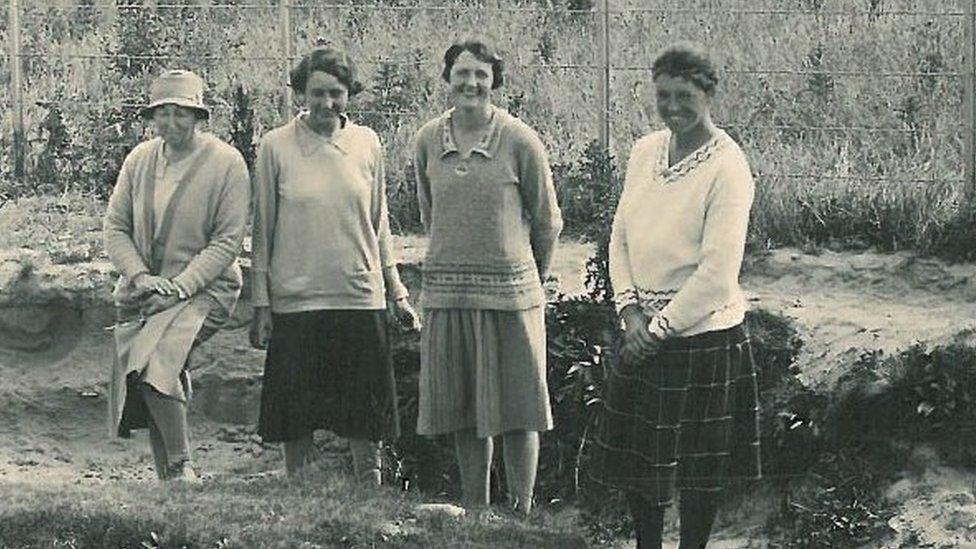Orkney U-Boat journey: How a sea cadet ended up on a WW2 German submarine
- Published
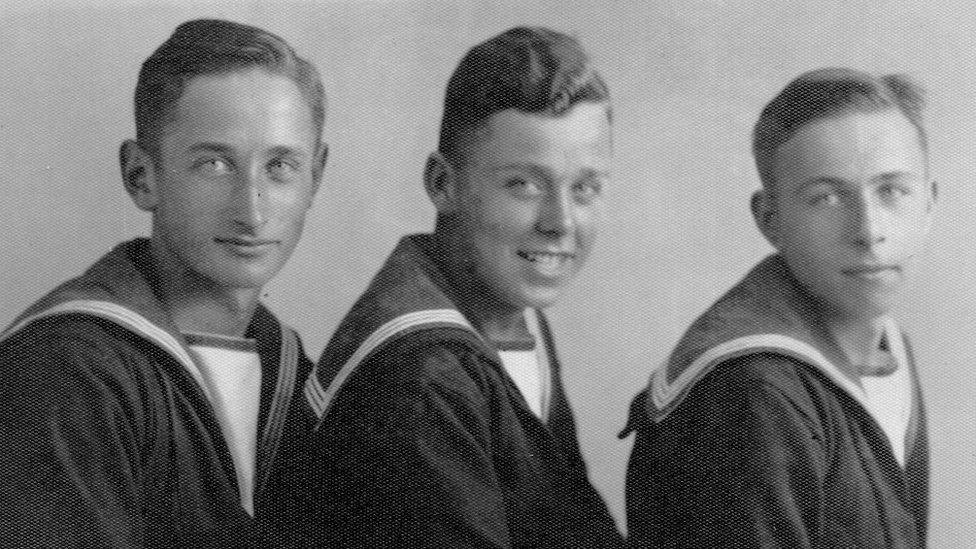
Peter Leith (L) made the journey from Orkney to Shetland on U-Boat as a sea cadet
A man from Orkney has been recalling how he took to sea in a German U-boat as a young sea cadet in a once-in-a-lifetime journey.
When Germany surrendered its U-boat fleet at the end of World War Two, the British Navy used two of them to tour the UK, showing the public what they were like.
In August 1945 they went on a charitable tour around British ports raising money for orphans, war widows, and sailors.
As a sea cadet, Peter Leith was helping with the visit to Orkney. This is when he was offered the opportunity to travel from Orkney to Shetland on a submarine.
King George's Fund
The Orcadian, external newspaper, dated 23 August 1945, reported that 3,500 people visited the U-boat and accompanying wartime photo exhibition. They had not been put off by the "miserable" weather and "heavy rain" reported in the previous week's newspaper.
The newspaper reported that 120 people were unable to get sailings to their home islands after the event because of fog.
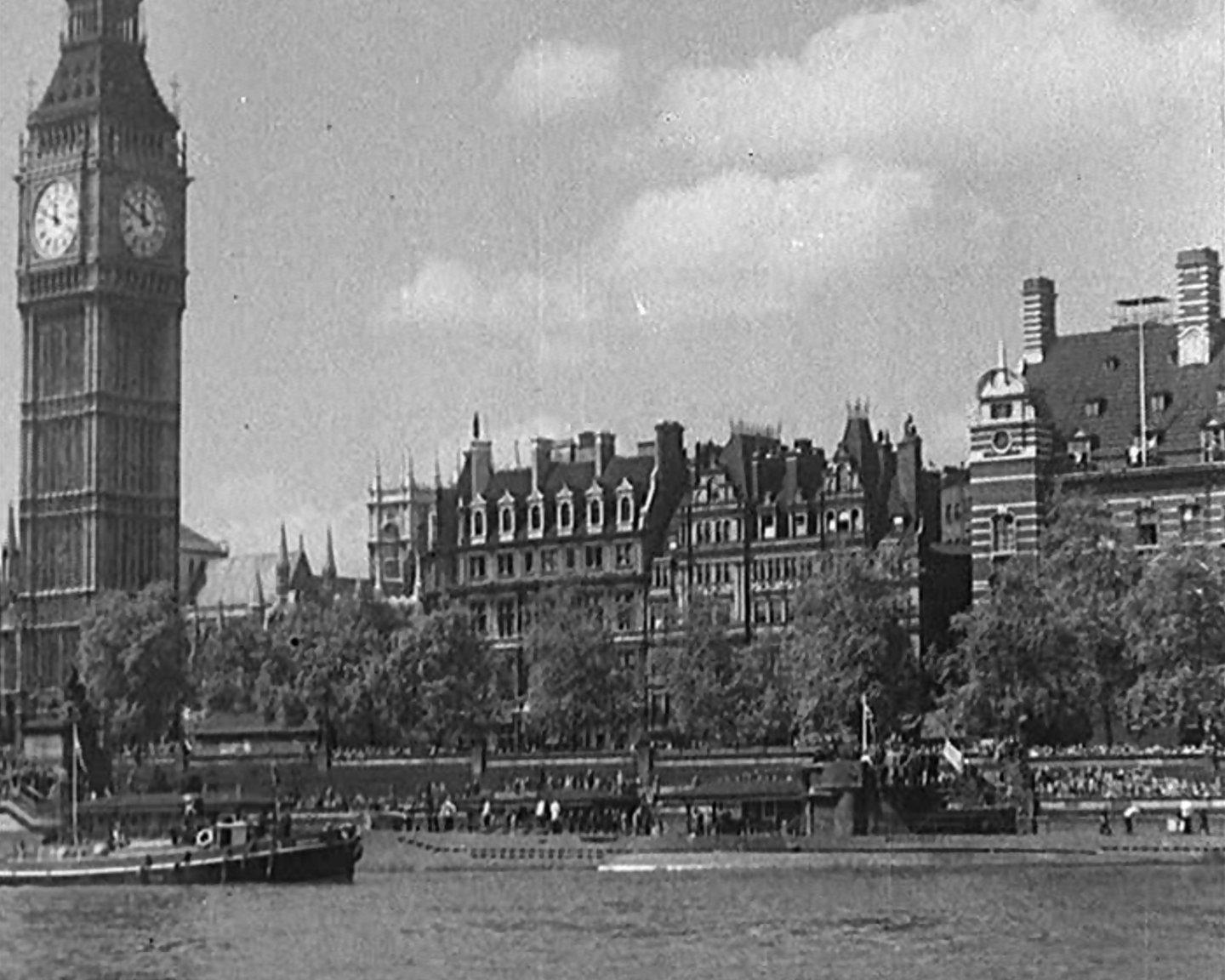
U-776 (bottom right) was also docked at Westminster
Among the visitors to the exhibition were the Kirkwall Sea Cadets, including Peter, collecting for the King George's Fund to raise money for those affected by the war.
"When the U-boat was in Kirkwall, the crew said they would take two cadets to Lerwick," recalls Peter, now aged 91.
"So they chose me and my fellow cadet Donald Sinclair. The plan was for us to go up there and get a boat back down to Orkney the next day."
'A strong smell'
The overnight journey was a smooth sailing, a journey described as "accomplished in dense fog" by The Orcadian.
U-776 departed Kirkwall at 21:00, docking in Lerwick harbour, Shetland, at 11:00 the next morning.
The submarine did not submerge at any point in the journey - something Peter was "disappointed" about.
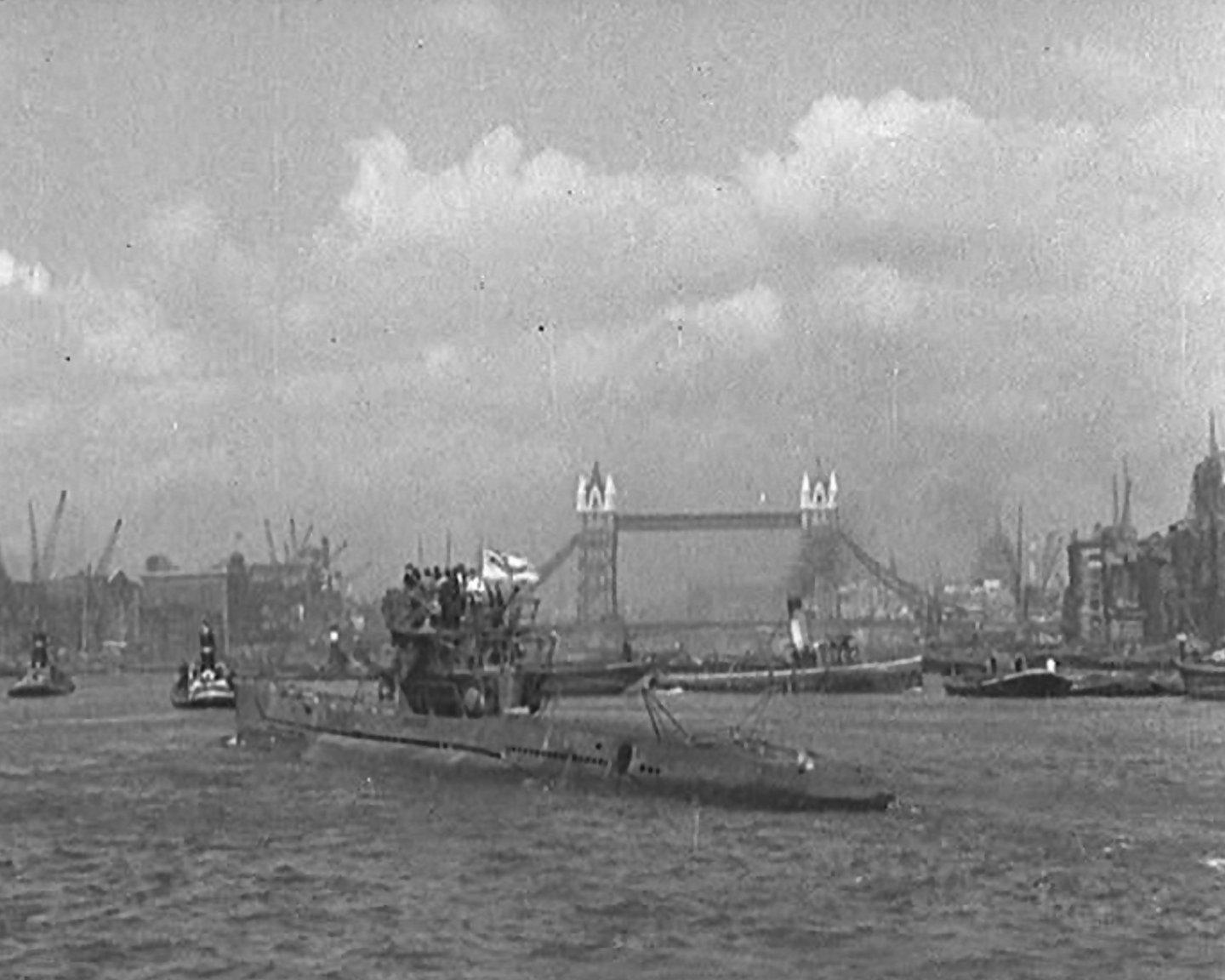
The submarine was a tourist attraction, collecting money for charity where it stopped
However, he recalls vividly what the U-boat was like inside when at sea.
"We had seen photos of submarines, and we had seen it in Kirkwall," says Peter, but he had never seen inside a U-boat.
"I got talking to one of the submariners who worked on a few of the machines and asked how they managed on a foreign ship. 'All submarines are the same,' he told me."
'Stuck in Shetland'
Even though they were sailing on the surface of the water, one of Peter's main memories of the submarine is the smell.
"They used electric motors in dock, but then switched to diesel engines to travel," he said.
"It was strong [throughout the submarine]. Most of the time we spent inside the boat - diesel was the strongest smell in there."
Peter remembers his unique journey as being smooth for the most part.
"The crossing wasn't too bad, actually. There were reasonable sea conditions. Still, I was sea-sick of course," he said.
When the cadets arrived in Shetland they found that their return transport had been delayed - Peter and Donald ended up staying with the sea cadets in Lerwick, and had a week to kill before their return to Kirkwall.
"That was around the time the Shetland Bus was winding down," Peter explained.
Most generous contributors
The Shetland Bus was a clandestine operation using fishing boats to transfer special agents in and out of Nazi-occupied Norway and to smuggle out Norwegians who feared arrest.
"They [the Shetland Bus] had kayaks which they had no more use for, so they gave them over to the Shetland Sea Cadets, and we were allowed to use them.
"Someone, I don't know exactly who, had a bright idea. So [with the kayaks] we set out to go to cross over to Bressay," remembered Peter, laughing at the thought he may have been one of a handful of people to make the one-mile round trip in such a manner.
Before his journey north on the U-boat, Peter's fundraising efforts with the sea cadets, and those of the Girls' Training Corps, were highlighted in The Orcadian from August 1945.
They reported that the highest single collection was more than £9 - worth more than £300 in modern money.
The total collected by the U-boat visit was £214 - worth more than £7,600 now - making Orkney the most generous stop on the U-boat UK tour, something The Orcadian hailed as a "unique success".
- Published23 June 2019
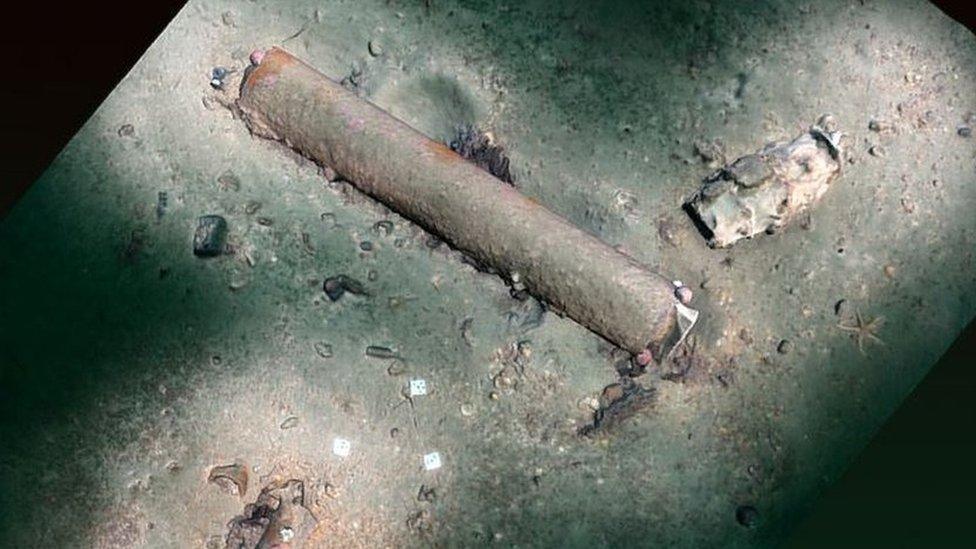
- Published17 January 2019

- Published21 March 2019
